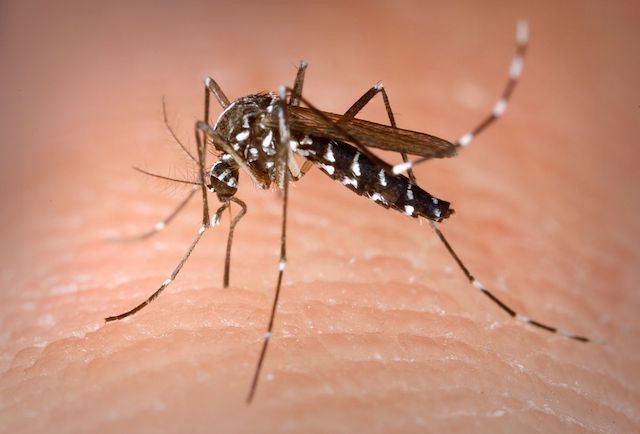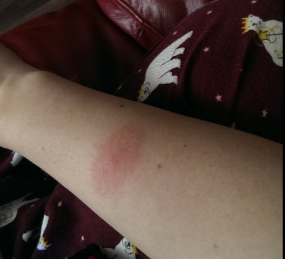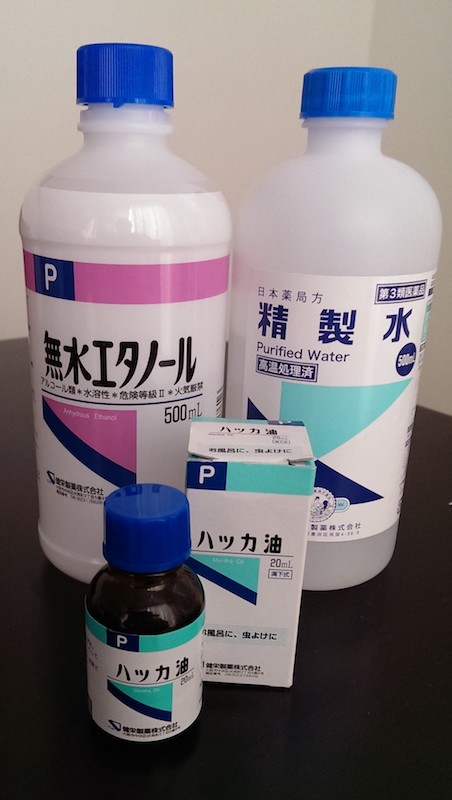2017
Mosquitoes in Japan and dealing with their bites
Aedes albopictus, or the Asian tiger mosquito, also known as evil incarnate. These abominations are common in many countries, and most of you will be familiar with them. You will see them flying around your homes, poorly air conditioned schools and government work places, and generally everywhere. They look like this:

- Ignore the distracting ones
- Were you born where you live? If not, you may be allergic
- Dealing with the itch
- Preventing bites in the first place is a must
Ignore the distracting ones
When you notice one of these bastards flying around your face, generally being annoying and disruptive, he’s often not the one you should be worried about. Mosquitoes often work in pairs, and when one is busy distracting you, another is busy popping you like a Capri Sun.

So if you see one that is flying around you but not trying to land on you, look around for another one that’s already on you.
Were you born where you live? If not, you may be allergic
If like me you were not born in Japan, everything from the common cold to mosquito bites on this side of the pond can cause much more severe reactions. Having not grown up here, my immune system is not accustomed to the variations in bacteria and viruses, so when I get sick, boy do I get sick. A simple cold will have me out of commission for 3-4 days with extremely high fever, severe body aches, coughing that can break ribs, and general malaise so bad I am bedridden.
This reaction is not typical for Japanese people, whose immune systems are accustomed to common attackers to where they can typically continue working throughout their illness. In a similar way, when Japanese people get bit by a mosquito, they can generally expect an average sized bug bite of average itchiness. When I get bit, I can expect something like this:

That is one bite, with a horrendously itchy and painful welt that took up almost the entire width of my arm. This is actually an allergic reaction. If you are not from Japan and have a tendency to get bit by mosquitoes (I envy those that don’t), you may have a similar experience. Unfortunately the only thing that can be done about it is to apply one metric tonne of itch cream and wait for it to dissipate, after which you may be left with scars for months and months even if you did your best not to scratch the damn thing.
Dealing with the itch
Even one of these can be unbearably itchy. I can tell you first-hand that the hot spoon method doesn’t work. Neither does pressing an ‘x’ into the bite with your fingernail. The most effective products I’ve found are Muhi S and Kinkan. You can find info on itch relief products here:
https://www.lifeabroad.jp/html/daily_life/insect_repellent.html#Muhi_S2a
For those of you from the U.S., there is a product called After Bite that was super effective and contained ammonia. They reformulated, taking out the ammonia, and now After Bite doesn’t work at all. Kinkan (キンカン)has ammonia, menthol, camphor, salicylic acid, and capsaicin, so it works wonders on bug bites. Just be sure not to put it on broken skin or rashes, as it will burn and make the issue worse.
If the OTC stuff doesn’t work, you can always go to your doctor or dermatologist and they will give you prescription itch relief cream. They are usually steroid based, so be sure to follow the instructions carefully and wash your hands after use.
Preventing bites in the first place is a must
A couple years ago there was an outbreak of Dengue Fever in Yoyogi Park. This year seems to be all right so far, but with the number of mosquito-borne diseases we should watch out for, prevention is key. Luckily, insect repellent can be found easily and affordably in Japan. We actually have an all-English list of repellents, with their active ingredients and instructions on the Life Abroad website. Check it out here:
https://www.lifeabroad.jp/html/daily_life/insect_repellent.html#Skin_Guard_Unscented
Most repellents here, like in other countries, contain DEET. For most people, DEET works great for keeping mosquitoes away from you. If you’re like me,however, DEET does literally nothing to deter mosquitoes from feasting on your delicious delicious blood. No matter how much I apply, the damn things still manage to drink me. Luckily, however, I have found a solution: I make my own. It works like a charm and it smells awesome, too.
Mosquito repellent spray recipe
- Ethanol alcohol (無水エタノール)10ml
- Peppermint oil (ハッカ油) 20-40 drops
- Purified water ( 精製水) 90ml
- Small spray bottle
Mix the alcohol and peppermint oil together. Pour into spray bottle. Add the purified water. Shake well before use. Store in refrigerator for cooling sensation during use.

All of these ingredients can be bought on Amazon or your local drug store. The peppermint variety happens to be the one that keeps mosquitoes off of me (the only times I get bit now are when I forget to spray myself). There are other varieties where you can use other kinds of oil that may work better for you.These kinds of sprays work by masking your smell from mosquitoes. Peppermint makes me smell delicious, but not to tiny blood suckers. It also keeps my skin feeling cool, which is a bonus considering how hot it is already.
NOTE: In the event of an outbreak of Dengue Fever, Malaria, Zika, or any other mosquito-borne disease, please follow the directions of the Ministry of Health, Labour, and Welfare (MHLW) or the World Health Organization (WHO).
Until the mosquitoes finally go away for the year, take care to protect yourselves!